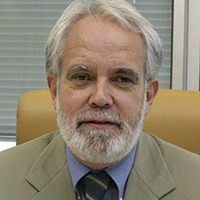"Barbara Tuchman and the Unfinished March of Folly", por Armando Mariante
- 08 julho 2025
Barbara Wertheim Tuchman was a renowned first-class historian and writer. She received the Pulitzer Prize for The Guns of August, a masterful account of the outbreak of World War I. But for many, her most important book was The March of Folly: From Troy to Vietnam, published in 1984. Economist John Kenneth Galbraith praised The March as an admirable survey, adding that he hadn’t read a more relevant book in years.
Barbara Tuchman died in 1989. Had she lived longer, she would have found no shortage of material for a new edition—a sort of Revisited March of Folly. The themes that haunted her—governments blind to reality, institutions acting against their own interests, and leaders trapped by hubris—have only grown more pronounced in the 21st century. From the invasion of Iraq to the climate crisis, from democratic erosion to reckless confrontations between nuclear powers, the world has continued along the same tragic trajectory she so carefully traced: the deliberate repetition of mistakes in the face of knowledge.
Tuchman believed that the tragedies of history are not born of ignorance, but of knowledge ignored or discarded. For her, folly was not mere error; it was the stubborn persistence in error despite clear and repeated warnings. She would likely recognize in our own time a disturbing expansion of this tragic pattern.
She would likely view the U.S. invasion of Iraq in 2003 as a near-perfect mirror of her analysis of the Vietnam War: a conflict launched under false assumptions, driven by ideology, and resistant to correction even in the face of mounting disaster. She would surely note the familiar manipulation of intelligence to justify policy, the suppression of dissenting voices, and the elevation of national prestige over prudent restraint.
On the COVID-19 pandemic, Tuchman would likely have seen a tragic confirmation of her thesis: a global crisis long predicted by scientists, yet met with unpreparedness, denial, and politicization. She would have been especially struck by how governments in many countries dismissed expert warnings, undermined public health authorities, and allowed ideology or image to outweigh clear medical guidance. In her eyes, the pandemic response would exemplify not a lack of information, but a failure to act on what was already known—an archetypal march of folly, with devastating human cost.
As for the climate crisis, she might not be surprised by the science itself, but by the decades of delay and obstruction—a global case of folly on a scale unprecedented in human history. The persistent choice to ignore or minimize overwhelming evidence in favor of short-term political and economic convenience would strike her as an abdication not only of responsibility, but of reason itself.
In the erosion of democratic norms, particularly in the United States, Tuchman would probably hear echoes of past republics that collapsed from within. Like the late Roman Senate or the monarchies of 18th-century Europe, modern democracies often appear paralyzed by self-interest, institutional decay, and fear in the face of rising authoritarianism. She would almost certainly condemn the moral collapse of leadership that enables the corrosion of truth, accountability, and public trust.
Regarding the recent U.S. strike on Iranian nuclear facilities, she would likely see the familiar pattern of choosing force over diplomacy, ignoring historical context, and underestimating the dangers of escalation. Tuchman had little patience for the seductive notion of “surgical” military action—especially when unaccompanied by long-term strategic thinking.
She might remind us that history is not merely a record of what happened—it is above all a ledger of warnings. And she would urge us not to ask what went wrong after the fact, but to listen for the signs before the next march of folly begins.
History, Barbara Tuchman taught us, is not just a chronicle of the past—it is a mirror held up to the present. In a world that continues to make avoidable mistakes, that forgets what it once knew, and that repeats tragedy with startling consistency, her voice still calls out—not to admonish, but to remind us that knowledge and power without wisdom is peril. If the march of folly continues today, it is not because we do not know better—we do—but because we choose not to act on what we know. And in that choice, Tuchman might warn us, lies the gravest threat of all.
As opiniões expressas nesta publicação são de responsabilidade do autor e não representam necessariamente o pensamento da instituição nem devem ser atribuídas ao Centro Brasileiro de Relações Internacionais (CEBRI), aos seus integrantes ou aos seus apoiadores.
Autores

